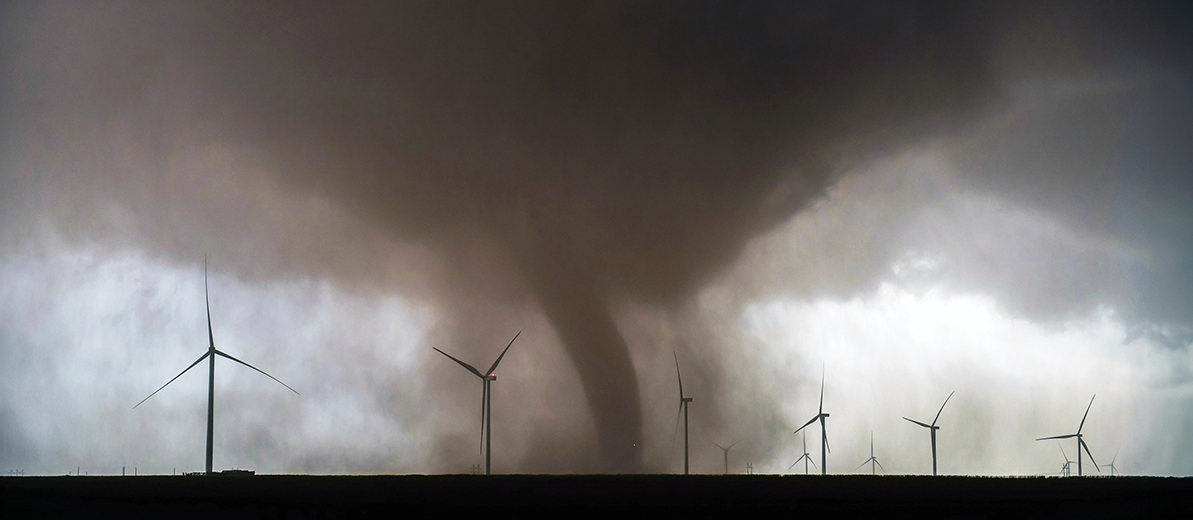
March 25, 2024
Problematic Construction Contract Clauses: Force Majeure
This is the seventh blog post in a series that discusses clauses in construction contracts with the goal of providing awareness of contract terms that often cause difficulties and give rise to claims.
Previous blog posts have addressed problematic contract clauses involving differing site conditions, no damages for delay, changes, coordination, suspension of work, warranty and defects liability, variation in quantity, and inspection. This post discusses force majeure clauses, and other posts will discuss flow down, compensation and payment, weather, escalation, and oral modifications clauses.
Force Majeure
Most construction contracts include a force majeure clause. The term “force majeure” is commonly defined as any act, event, cause, or occurrence that renders a party unable to perform its obligation and is not within the reasonable control of and not caused by the negligence or fault of the party, such as tornadoes, hurricanes, floods, earthquakes, other acts of God, war or other hostilities, and labor unrest (unless caused by the contractor’s actions or inactions).
An act of God (one type of force majeure delay) has been defined as a “singular unexpected and irregular visitation of a force of nature.”1 It is normally considered to be beyond the control and without the fault or negligence of the contractor.
Contractually, delay can be classified as compensable, excusable, or non-excusable. It is compensable if the owner is at fault, excusable if neither party is at fault, and non-excusable if the contractor is at fault. Delays resulting from force majeure events are normally excusable in the absence of a clause in the contract stating otherwise. Force majeure clauses typically identify such events as excusable delays, allowing the contractor a time extension. However, these clauses are typically silent as to responsibility for delay costs and additional direct costs that result from the force majeure event.
An example private contract has the following force majeure clause:
ARTICLE 24 FORCE MAJEURE
24.1 In the event that either party is prevented, hindered or delayed in performing any of its obligations hereunder as a result of a Force Majeure occurrence, such party shall notify the other party, in writing, of the occurrence of such event and the circumstances thereof within five (5) days after the occurrence of such event. Force Majeure shall be defined as any of the following:
(a) An act of God (except normal weather conditions for the geographic area of the Plant), lightning, earthquake, epidemic, or similar occurrence;
(b) Expropriation, confiscation, requisitioning or commandeering by or compliance with any oral or written order, directive or request of any governmental authority or person purporting to act therefor or under such authority;
(c) War (whether declared or not), blockade, act of foreign enemy, insurrection, hostilities, acts of terrorism, rebellion, or public disorder;
(d) Ionizing, radiation or contamination by radioactivity;
(e) Explosions, fires, floods, or other natural calamities;
(f) Entry of an injunction or restraining order or judgment by a Court or governmental officer or body;
(g) Maritime disaster; or
(h) Strikes or labor disturbances.
24.2 To the extent that a party’s performance of its obligations hereunder is prevented, hindered or delayed by an event of Force Majeure and to the extent that notice has been given to the other party pursuant to Article 24.1 hereof, such party shall be excused as of the date of occurrence of the event of Force Majeure from the performance or punctual performance of its obligations hereunder for so long as the relevant event of Force Majeure continues provided that the affected party demonstrates that the occurrence (i) could not have been reasonably foreseen before the Effective Date and is beyond the control of the party; (ii) could not have been avoided by use and due care; and (iii) such occurrence materially and directly impairs the ability of the affected party to perform. If a party fails to give notice to the other party of such event of Force Majeure within the time period set forth in Article 24.1 hereof, such party’s relief of its obligations hereunder shall begin as of the date such notice is actually given to the other party.
24.3 The party prevented, hindered or delayed in performing any of its obligations hereunder as a result of an event of Force Majeure shall use its best efforts to mitigate the effect thereof upon the performance of its obligations under this Agreement.
24.4 Any Force Majeure delays as defined herein shall be considered an excusable delay, and neither party shall be entitled to additional compensation as a result thereof; provided, however, that Contractor shall be entitled to an extension of time for the period of delay caused by the Force Majeure circumstances only to the extent that the Contractor can demonstrate that such delays actually caused, or will cause, delay to the Scheduled Mechanical Completion Date. Delays that only consume the available float in the schedule will not be the basis of a time extension.
Courts may construe common law principles to interpret a force majeure provision and find that the party seeking to excuse its nonperformance cannot rely on the provision because the purported force majeure event was foreseeable, even if the provision does not expressly require unforeseeability.2 States (and even courts within a state) differ on whether unforeseeability is an implicit requirement of express force majeure provisions and, if so, whether it applies only to events specifically listed in the clause, only to events within the clause’s catch-all provision, or to both. For example, a hurricane in the southeast United States may not be considered unforeseeable.
In English law, force majeure events must be defined in the contract. This contrasts with the position of civil law jurisdictions that frequently include the concept of force majeure within their civil codes. Sometimes it is beyond dispute that an event meets a contract’s definition of force majeure. Although the requirements depend on the terms of the contract, the party must usually also prove that:
- the force majeure event caused that party’s failure to perform its contractual obligations; and
- the party took sufficient steps to minimize the issue caused by the force majeure event.
Force majeure clauses often require parties to take “reasonable steps” or make “reasonable endeavours” to avoid, or at least reduce, the adverse effects of a force majeure event. Several of the FIDIC 1999 and 2017 suites of contracts, for example, require each party to use “all reasonable endeavours” to mitigate the effects of force majeure.
When a contractor believes that it has experienced a force majeure event, it should notify the owner. If the contractor intends to seek a time extension because of the event, it should first determine if the event affected the activities on the then-current critical path of the project. For example, if engineering activities performed in another state, and not the onsite construction activities, were critical at the time of a tornado impacting the jobsite, then the contractor may not have entitlement to a time extension. If the force majeure event did affect activities on the then-current critical path, the contractor may have entitlement to a time extension. Unless the contract provides otherwise, the contractor may not have entitlement to recover its delay costs that resulted from the force majeure event.
1 Akwa-Downey Constr. Co., ASBCA No. 14823, 75-1 BCA (CCH) ¶ 11254 (1975).
2 See TEC Olmos, LLC & Terrace Energy Corporation F/K/A Terrace Resources, Inc. v. ConocoPhillips Company, No. 01-16-00579-CV, slip op. (Tex. App.—Houston [1st Dist.] May 31, 2018).
ADDITIONAL RESOURCES

Blog
Discover industry insights on construction disputes and claims, project management, risk analysis, and more.
MORE

Articles
Articles by our engineering and construction claims experts cover topics ranging from acceleration to why claims occur.
MORE

Publications
We are committed to sharing industry knowledge through publication of our books and presentations.
MORE
RECOMMENDED READS
Acts of God/Weather
Delays resulting from acts of God are normally excusable but noncompensable events in the absence of a contract clause stating otherwise.
READ
An Overview of Excusable Delays
This blog post discusses excusable delays in construction, including compensable and non-compensable delays.
READ
Force Majeure Delay Claim during the Construction of a New Hospital
This blog post explains how a contractor successfully mitigated a schedule and resolved an insurance claim after an extreme weather event.
READ

